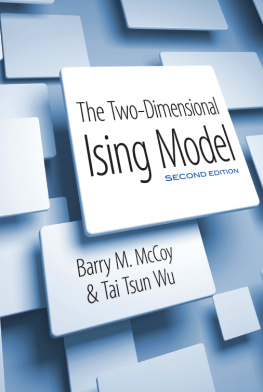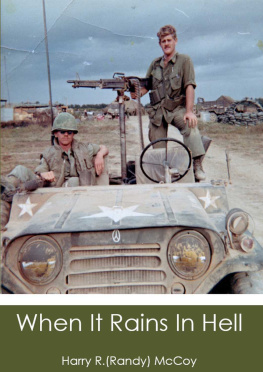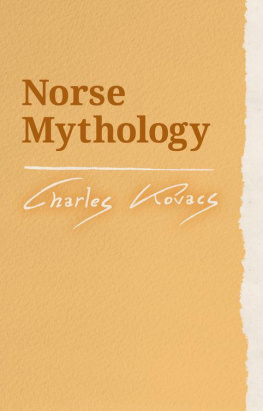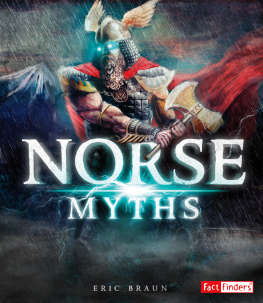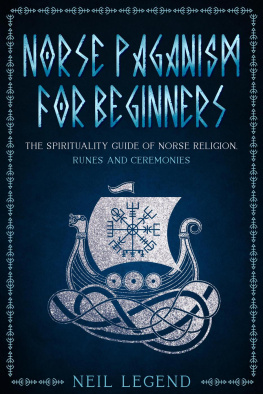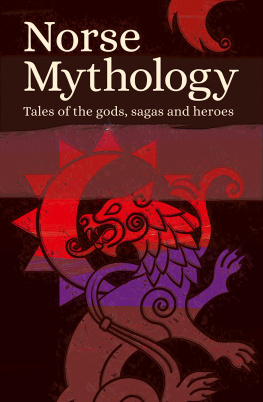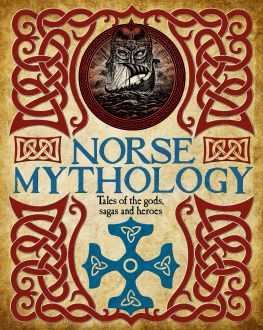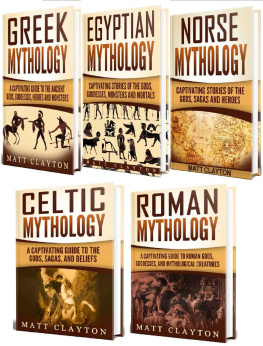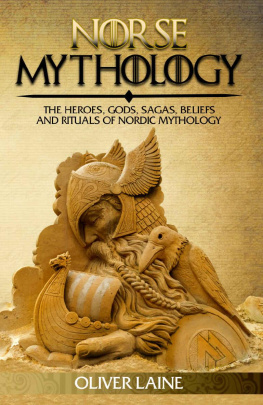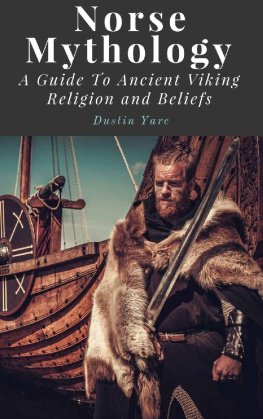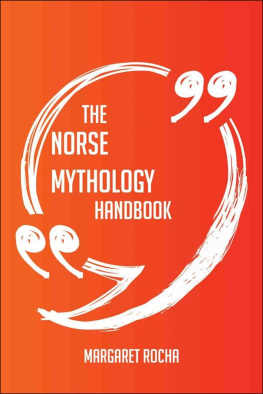All rights reserved.
Chapter 1: Introduction
THE VIKING WORLD
The longship sways on the windy sea like a seer in a trance. After days of hard rowing through rain and roiling waves, the crew is exhausted. Their rough, gray-brown woolen clothes are heavy with water, and even though the rain has finally given way to a merely cloudy morning, the August air is cool enough that the drenched men shiver as they take turns rowing and amusing themselves with dice games.
They had set sail from the western coast of Scandinavia several days ago, bound for the eastern coast of England, a land about whose riches they had heard many marvelous tales from Vikings under the leadership of neighboring kings and chieftains. None of the men in the kings fleet of five impressive ships have ever yet set foot on that great island. But they are expert navigators, and know the signs to watch in the sky and water to guide them west.
Sverrir removes a soggy barley roll from his sack and takes a bite. The bread, having been threshed on the ground, is full of bits of sand and dirt. Although hes only in his late teens, eating rough bread like this for his entire life has ground his teeth down considerably. Hes already lost a few of them. This roll, however, has some of the inner bark of a pine tree baked into it to provide much-needed vitamins to ward off scurvy. Though the meager roll is not enough to fill his belly, hes grateful for the edge being taken off his hunger, as well as the nourishment.
In his childhood, Sverrir had grown up the son of a fairly well-off farmer. Although he had been made to join in the difficult, dangerous, and seemingly neverending farmwork when he was still a young boy, and had lived through two separate occasions of bitter famine that left him shorter than he would otherwise have been, he has often found himself missing the relative certainty and security of those days. He had always wanted to inherit his fathers farm, but when his father died from disease when Sverrir was seventeen, he had known that as the fourth and youngest son, he stood little chance of inheriting anything in his fathers estate. And he had been right. So, out of hardship as much as ambition, he had gone and joined the kings band of warriors and raiders.
Now, at last, he is on his first raid. Still just eighteen, he is terrified, but eager for the honor that these pursuits will surely bring him back at home. And his leader, King Harald, has so far shown himself to be a noble, generous, and fiercely clever man. Sverrir is proud to serve him.
Sverrir looks up and sees his king standing at the front of the ship, observing the heavens and giving instructions to the helmsman. This, thinks Sverrir, is how Odin must look when he leads the gods into battle against the giants. Sverrir himself is a man of Thor, and he had sacrificed a goat to his patron god in return for good fortune on this raid on the day before he left home.
A gull cries out as it flies overhead. The crewmembers all cease their tasks for a moment and take notice. It means that theyre getting close to land. And, soon enough, through the clearing mist, the first faint outlines of the white and green coast of England come into view.
The clanking and tinkling of metal can be heard from every corner of the ship as the warriors get their weapons in order. The few of them who own some pieces of armor put them on. Sverrir readies his axe. He and Hauk, his best friend from childhood who has also become one of the kings warriors, exchange warm words of encouragement. The king delivers a rousing speech, as do the chieftains for their men in the accompanying vessels.
The ships land and their crews disembark. No one else is in sight, but if their informants have told them correctly, there should be a wealthy trading city just over the dune-like hills that form the perimeter of the sandy beach.
When the kings force rounds the crest of the hills, they see a large town with a magnificent, ornate building with many spires in its center. Still no one is in sight. But as they make their way through the farms at the citys edge and toward the wall that encloses the city proper, they see bread half-kneaded sitting on tables and fires half-smoldering in hearths. The inhabitants of these farms have left very recently and very quickly.
By the time the force reaches the city gates, many of the warriors have worked themselves up into an ecstatic frenzy and are howling, baying, and roaring like wolves and bears. Everyone is shouting and banging their weapons against their thick wooden shields. The first flurry of arrows rains down upon them from slits in the stone wall above the grand doors. The men raise their shields to deflect them. A few anguished screams are heard, but the band presses forward. In a surprisingly short time, they hack their way through the doors and into the city. But again, they see no one. Even the archers have seemingly fled. The men go around ransacking everything in their path, picking up anything of value they encounter, of which they can find strangely little.
At last, they reach the grandiose building at the center of the city. Sverrir whispers to Hauk that the building looks like one of the great temples hes been told exist in this land, where ceremonies so bizarre as to be barely believable take place to honor a god who is said to reign alone and to hate all of the other gods and goddesses. If the legends are true, he says, the people who worship in such a place even eat the flesh and blood of one of their heroes. The ever-skeptical Hauk snorts and dismisses such reports as nothing more than tall tales.
At first, they hear no sounds coming from within the building. But as they get closer, they can make out the muffled sounds of a man speaking. There is authority and leadership in his tone and cadence, but his voice cracks and scrambles, as if out of mortal fear. The Vikings chop through the doors and smash the high, intricately-colored windows.
As the first warriors pour in, desperate shrieks break out from the crowd of men, women, and children huddled inside. The interior of the building is more lavish by far than any Sverrir has ever seen. This effect is heightened by the fact that the townspeople have evidently brought all of the valuables they could into this place with them, although many of the most expensive items Sverrir can see around him are part of the fixtures of the building itself.
The townspeople perform a strange gesture that involves touching one of their hands to four different parts of their torso and head as the Vikings begin to hew down anyone man, woman, or child who stands between them and their plunder. Some seem to murder for no other reason than sport, or perhaps unquenchable, ecstatic rage.
Sverrir approaches a man wearing a long, richly decorated robe, attempting to flee with an axe-sized cross made of gold with the body of a scrawny man carved onto one side. Sverrir grabs him by the shoulder, stares down at him with all the ferocity he can muster, and says, Give me the gold youre holding and Ill spare your life. Then man hesitates, weeping, but when Sverrir raises his axe, he obliges. Sverrir lets him go, and the man inhales to heave a sigh of both relief and despair before another one of the Viking warriors, a veteran of many raids famed for his reckless daring, rushes up screaming and slashes the mans head halfway off his neck, so that it dangles to one side as the mans body falls to the ground. The young fighter feels his stomach contents lurching up toward his mouth, but he summons all his strength to force them back down. The senseless suffering and gore all around him has turned out to bear little resemblance to the shining vision of battle that had been presented to him in songs and speeches back at home. But, he reminds himself, he is still young and inexperienced; perhaps hes missing something. And after all, are not he and his fellow raiders winning the wealth they set out to win and, afterwards, a celebrated name in their hometown? Doesnt that make the rest of this really quite grim and sordid expedition worthwhile?



